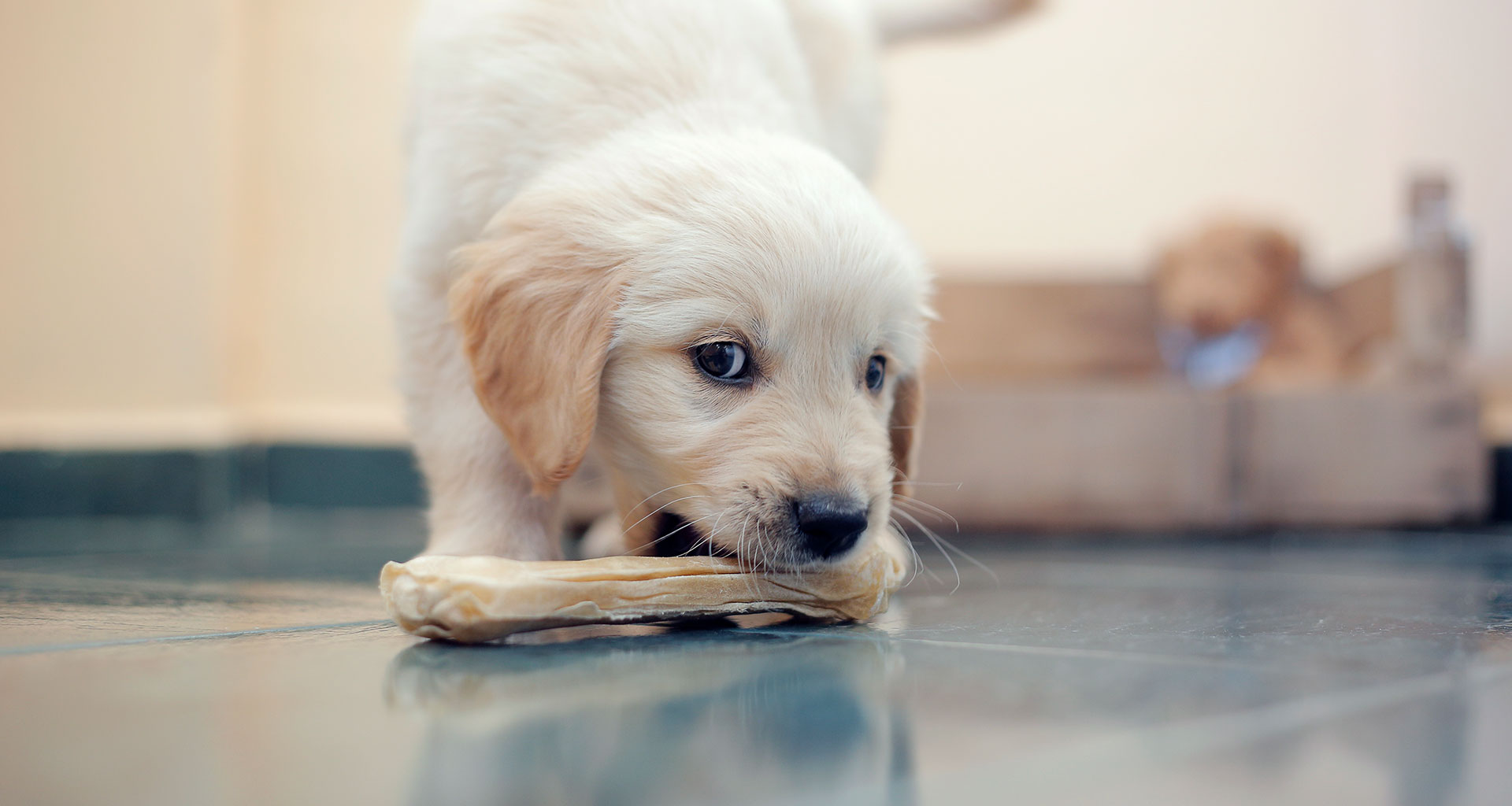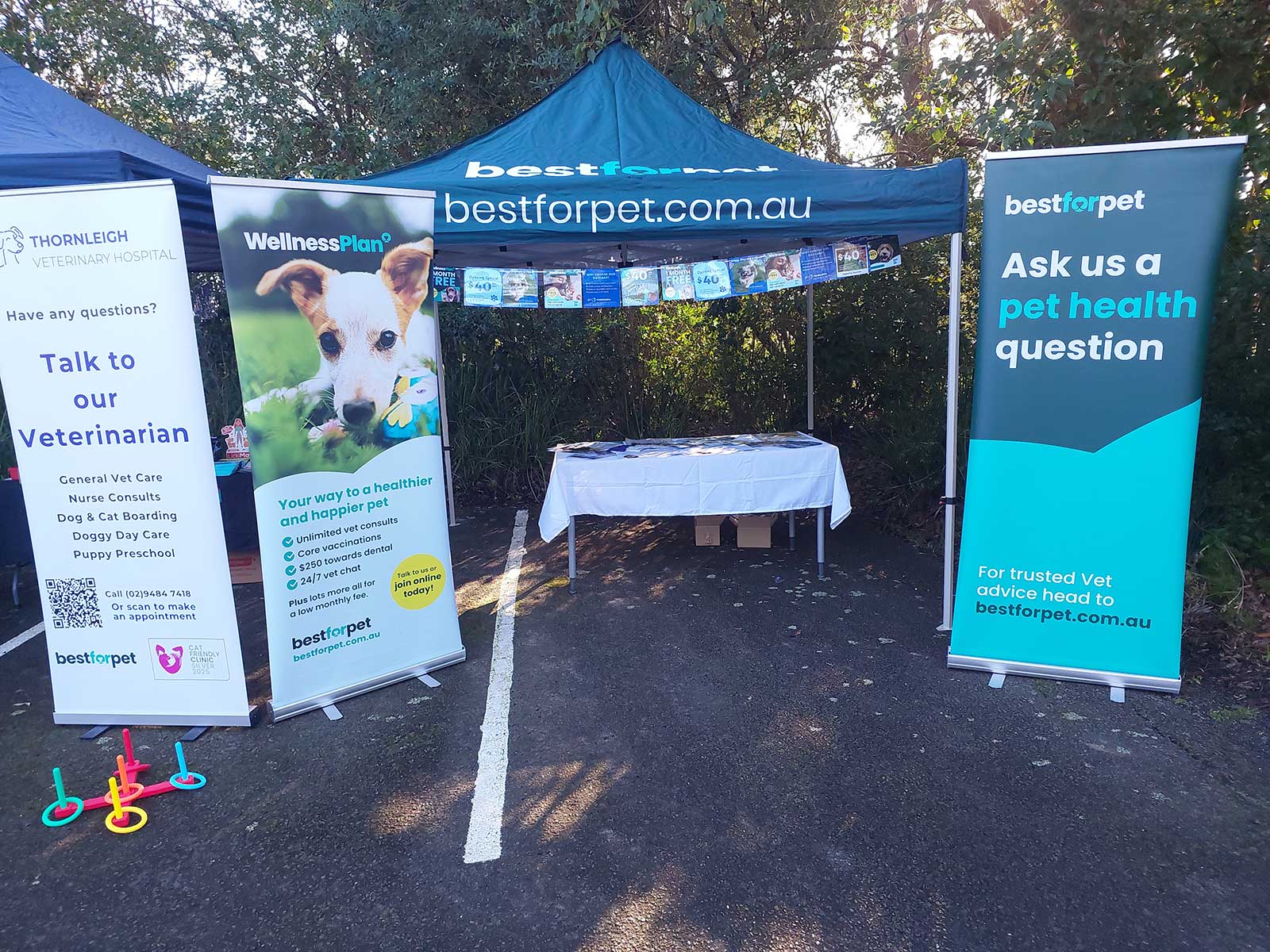A food allergy is a reaction to food that involves the body’s immune system. It is usually always a protein particle in the food that is responsible for reactions. Your pet may itch, lick and chew at areas of skin such as paws, abdomen, groin, neck or ears. The itching is not usually seasonal and may sometimes involve chronic ear infections. Your pet may also have some gastrointestinal signs or a “sensitive stomach” with chronic vomiting, diarrhoea, burping or frequent bowel movements.
If your vet has decided to do a food or elimination trial they will have a discussion with you about what foods your pet has previously eaten and what diet they should transition to. The diet selected must contain a “novel” protein and carbohydrate source meaning that they have not eaten this source in the past. Many over the counter diets may claim to be hypoallergenic or good for sensitive skin. It is important to realise these claims have no official meaning and many of these diets have inappropriate ingredients so it’s crucial to pick a diet with your vet that is specific to your pet’s needs.
Commercial prescription diets are available for food allergy trials such as Hills Z/d Ultra or Royal Canin Hypoallergenic or Anallergenic. These diets contain consistent ingredients and are excellent quality. These are only available through vet hospitals and come in wet and dry food forms.
Some pets will not eat the prescription diets, so a homemade diet may need to be used. These diets must contain a novel protein source and carbohydrate. A homemade diet must NOT be fed long term as they are not a balanced diet however they are appropriate for a short-term food trial. Examples of an appropriate home cooked diet are (combine one from each column).
| PROTEIN | CARBOHYDRATE |
| Tuna | Sweet Potato |
| Salmon | Pumpkin |
| Rabbit | Oats |
| Kangaroo | Barley |
| Chick peas | Quinoa |
| White fish | Potato |
Remember the food you select must be something they have never had before. Once you have selected the food you will be using for the trial, gradually transition them to it over 2 weeks (during this time mix it with their current food). Start the 12 weeks from the day they are 100% on the new food.
Important points for a food trial
- Your pet must eat NOTHING else within the 12 weeks. This includes treats, table scraps or even worming tablets or supplements that are flavoured. If you wish to “treat” your pet, please keep aside some of their daily dry biscuits or meat to give them.
- Make sure all family and friends are aware that your pet is on a food trial and cannot eat anything else.
- In a multi-pet household, you must prevent the patient from eating another animal’s food.
- Do you not give your pet any chance to eat anything else e.g. make garbage inaccessible and make sure they cannot wander unsupervised.
It is crucial you give the food trial the full 12 weeks to work as sometimes it takes this long to see an improvement. If your pet eats anything other than their food allergy food within this time, you must start the 12 weeks again from this date. Ideally the vet would like to see you monthly to assess any improvement and make sure your pet is maintaining their weight.
A positive result means that your pet’s skin and gastrointestinal issues can be managed with diet. After the trial you have the option of continuing the prescription food or electing to try a food challenge test which involves re-introducing different foods (one at a time) to see what triggers the allergies. If the trigger can be identified a commercial food can be selected that does not contain this source. If they are on a home cooked diet this must be balanced if it is to be continued. Please discuss this with your vet.


